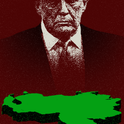Riyadh surprised me. I had expected an antiseptic society of polished malls, endless tarmacked highways and high walls. What I found was something much messier and—well, human. A closed-off, rigidly patriarchal society, yes, but one with more colour, humour, poverty and femininity than I had imagined. Watching TV one night and seeing the satirical comedy show Tash Ma Tash poke fun at the mores of Saudi society, the surprise was near total; all my travels through the years in the Middle East, even as an Arabic speaker, had not prepared me to find life here, in the dry, conservative capital of Saudi Arabia.
My expectations of the country were based on myths. In the popular imagination, it is a cipher for untamed desert, obscene wealth and a fundamentalism that is hardwired into every corner of an overtly religious system. These ideas are hardened by the infamous impenetrability of Saudi society—an introverted, insular culture of families that can make open reportage near impossible.
But the longer you spend in Saudi, the more the myths are swallowed by reality. Change is beginning to happen here, as its leaders attempt to balance a careful reform against entrenched conservatism and the constantly perceived threat of revolution—either an Islamic one, or a popular Arab Spring one—to plot a course ahead.
Like everywhere else, Saudi Arabia is a country of infinite complexity and nuance. The country may be rated among the least free in the world, but ratings ignore the intricate social dynamics in the country, and the agency of individual Saudis. In the notorious “Chop Chop Square,” where executions of those found guilty of murder, rape and drugs charges take place—there have been about 75 public executions in Saudi Arabia this year—I found a scene just like any other square, anywhere in the world. Children danced in and out of the fountains, as their mothers watched on. Outside the headquarters of the dreaded religious police—the mutawwa'in, who look out for breaches of strict sharia law, such as immodest dress—teenagers wearing football shirts printed with “Ronaldo” curled the balls round one another into a makeshift goal, and families ate ice cream in the shade.
I am aware that my access to these scenes is privileged, afforded to me because of my gender. I am aware, too, that my status is that of an outsider, and that this society is still rigidly oppressive and patriarchal; what marked the square out from others was the women covered in burqas. But during five years of visiting Saudi, I have learnt enough to say that the myths we hold about it obscure the changes that are beginning to occur in its society, and grossly simplify our analysis of a country so critical to the Middle East. Saudi Arabia is a country in which change is imminent and tangible.
Riyadh seems to breathe more easily today, even in the searing heat, compared to when I first visited. Then, the relatively new King Abdullah had just started to change Saudi politics and society at a seemingly glacial pace. Although the changes he has now wrought in the system are not obvious, they are there, paving the way for further changes in the future.
The King's gradual muting of the extremist elements of the Saudi clergy and their rigid Wahhabism—including the August arrests of several radical clergy for recruiting young worshippers to extremistgroups, for example—has been critical to allowing Saudi society to breathe. The recent acceleration of this has come in response to the threat of ISIS against his country, rather than the internal weight of change. Nonetheless, Abdullah has gradually brought the Wahhabist clergy to heel, placing them under his control and bucking the years of non-interference by the royal family in clerical affairs. An excellent article by Hanan al-Hashemi in the Arabic newspaper Al Akhbar describes how the Saudi press has recently allowed a wave of criticism of Wahhabism to be published, which could only have been approved at the highest levels.
Today, fatwas (Islamic legal rulings), even those concerning personal behaviour, can only be issued by scholars associated with the King's hand selected Council of Ulema. Abdullah took the step last week of replacing his aged Minister of Islamic Affairs with a younger scholar, Suleiman Abalkhail, amid media speculation about his frustration that the Ministry had not done enough to challenge extremism. Abdullah has made much of his hatred of extremism and terrorism, calling on his citizens throughout this year to reject them. He has called, too, for moderation in interpretation and addressed the status of women in his speeches. These are important steps. The behaviour of the country is no longer moderated solely by an untouchable, repressive clergy, but by a King who seems to understand that some change, however small, is critical to the future of the country.
The King may be elderly and rooted in the tribal traditions of Saudi, but he is a pragmatic man. The muting of the clergy has allowed him to push through an increased number of micro-changes: more municipal elections; the first female minister; huge endowments to non-Islamic universities; and women's participation in the Olympics. Though these incremental improvements may look cosmetic (they do not get to the heart of the patriarchal “guardianship” system, for example, under which women must have permission from a male relative to carry out many basic activities in public) they nonetheless carry deep symbolic meaning. Saudis discuss politics, a lot, and this symbolism is not lost on them. As a Saudi friend of mine pointed out, there are debates occurring now on Twitter that would have been unimaginable 10 years ago.
Some of those debates are about economic conditions. One truth about Saudi is that it is a deeply divided country, economically and socially. The poverty is obvious in areas of Riyadh, and over 600,000 Saudi families are now on welfare, exploding the myth of it as an intensely wealthy country. There is a huge gap between the rich and poor in Riyadh, and between the wealth and poverty of urban and rural areas respectively. It is a gap that Saudi leaders know they must close, but they have struggled to, despite serious attempts at economic growth and diversification.
In this context, the typical Saudi has the same demands as others around the world: prosperity, opportunity, more control over their future. These demands are slowly filtering through on social media as the micro-changes carry over even into this heavily policed forum. Though Reporters without Borders classifies Saudi as an “Enemy of the Internet,” systematically targeting and surveilling internet users and arresting social media activists, the country nonetheless has the most Twitter users in the world per capita. Social media has frequently been used as a vehicle for protest, including about the cost of living and the recent videos of women driving (which they are not allowed to do). This a medium that allows debate to rage across Saudi and it is just possible that the globally-connected Saudi youth, alongside the country's small middle class, can act as the motor for change, as they have done elsewhere in the Arab world.
But change is not an easy thing here. The power of social media works in both directions: a hardline Sunni Wahhabist constituency antithetical to progress has also found its voice online and is unafraid to use it, either in support of the recent butchery of Shias in al-Dawla, or in criticising their “westernised” government. The internet is still tightly monitored. The country itself is, too. Wahhabism is still central to the legitimacy of the ruling al-Saud family, and though its extremist bent is muted, its puritanical character remains, particularly through the religious police. Often poorly achieving religious scholars, these officers still have the power to challenge and curtail any change that is too obvious in the public sphere, either through harassment or physical punishment, and though they are more contested than they have been previously, they remain a powerful public statement of the relationship between religion, state and society.
Change is also difficult because tradition and history are vitally important in Saudi society, as this young nation anchors itself in the vast, Islamic history of its land. Ancestry and blood is the wellspring of the Saudi family, particularly so within the al-Saud dynasty—a huge network, as much state as it is family, who gave the country its name and have led it since its creation in 1932. Within this context, to change too radically is to disrespect what came before; to admit that your elders were wrong, in a society in which one cannot openly disagree with a senior. No king of the al-Saud can move too quickly.
So the king will remain a cautious driver at the top, one who sets the pace of change and modifies it should it become too quick. In an absolute monarchy, it is an incredibly powerful position, with the ability to crush change in a heartbeat, given the right pressures. But here there is hope. The lineage for the next king is set, and the nominated candidates, Crown Prince Salman and Prince Muqrin, are pragmatic conservatives of the Abdullah mould. Abdullah has fought hard within the family to ensure this, circumventing several established mechanisms under which Prince Muqrin would not normally be considered second-in-line to the throne. Muqrin is 69, a relative youngster in Saudi terms, and it would be no surprise to see 15 years of relatively stable rule, with all that entails.
One myth about Saudi, though, has proven true. Change here will not be an explosive rupture with the past, as it has been elsewhere, but a gradual, tightly-managed shift. Wahhabism will remain, so will patriarchy and puritans, lack of rights and economic imbalance. But, slowly, they will be contested. Western countries must adjust their expectations accordingly, while continuing to push for those reforms. The danger here is not a revolution gone bad, as has happened in Syria, but of a retreat to total conservatism to forestall it, either to please domestic constituencies or because of external events. The changes outside Saudi's borders are more rapid than one can imagine, and it may be the one thing the country cannot cope with. If the Arab Winter encroaches on Saudi too quickly, the only response will be a return to rigid conservatism and the closing of the curtain on an unprecedented and unforeseen era of micro-openings. There is life, colour and hope here, but it is a fragile thing.












